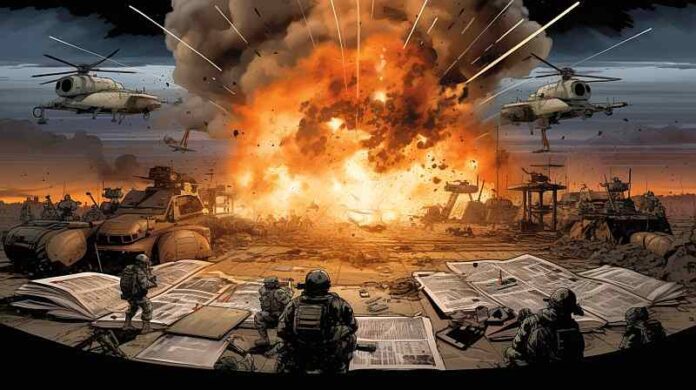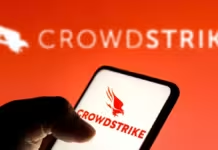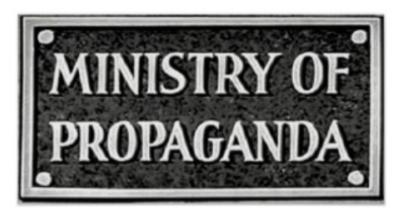A new battleground has emerged in the digital age, where bytes and pixels move faster than bullets. And it has dramatically reshaped the landscape of modern conflict. No longer confined to trenches or open fields, today’s wars often play out on the screens of our smartphones and the timelines of our social media feeds.

It is the realm of information warfare, a space where nations, organizations, and even individuals wield information as both a weapon and a shield. But what exactly is information warfare?
Journey with us as we dive into the intricate web of digital espionage, propaganda, and cyber strategies that define our era’s most silent yet profoundly impactful form of combat.
The New Age of Battles: Information at the Helm
In this era, the minds of the masses have become the primary battlefield. Rather than physical territories, the space of perceptions, beliefs, and public opinions is being contested and conquered.
It isn’t a mere subplot of some sci-fi thriller. It’s our reality. Information warfare isn’t just about cyberattacks or hacking email servers, as vital as those elements are.
It’s also about creating doubt, sowing discord, and driving societal wedges. The narratives spun in this warfare can cast shadows of suspicion on allies, create fake heroes or villains overnight, and even rewrite history in real time.
Just as the invention of gunpowder, the airplane, or the nuclear bomb changed the fabric of warfare, so is information altering the landscape. While our cities remain intact and our landscapes unscarred, nations’ socio-political frameworks and psyches are molded, twisted, and sometimes fractured.
From Propaganda to Deepfakes: Tools of Information Warfare
The journey from old-school propaganda to today’s high-tech disinformation is as fascinating as it is alarming. Think back to the era when the reach of a message was mostly the distance a radio wave could travel or how many hands a newspaper passed through.
Governments and organizations masterfully crafted tales, often dripping with bias. They fed them to the public through mediums like roaring radios in living rooms, black-and-white films in packed theaters, and morning newspaper headlines. Every message had a purpose, every tale a tailored spin.
But the digital age? It’s a different beast altogether.
The Deepfake Era
With today’s technology, not only has the spread of information exponentially accelerated, but the very nature of its fabrication has evolved. Enter deepfakes.
Leveraging the prowess of artificial intelligence, these aren’t your run-of-the-mill photoshopped images. They’re videos and audios that replicate the nuances of a human—be it their voice, gestures, or facial expressions—with unnerving precision.
The unsettling reality? They can make anyone say or do anything. Picture a clip where a prominent figure spouts dangerous ideologies or declares actions they never intended. The ramifications are not just misleading—they’re potentially catastrophic.
Social Media: The Double-Edged Sword
In the grand coliseum of the internet, social media stands as a gladiator wielding power and influence, often with unpredictable outcomes.

Read Next: Modern Espionage: Information Warfare in the Digital Age
Platforms like Facebook, Twitter, and TikTok, originally designed to bring us closer, are now intricately woven into the tapestry of information warfare. The rapid-fire dissemination of factual and fabricated content has had profound implications on global events and individual perceptions.
Remember the 2016 U.S. presidential elections? Reports later revealed a vast network of fake accounts and trolls, traced back to a Russian agency, aimed at inflaming political tensions. These accounts strategically shared and amplified divisive content, sowing seeds of discord among voters.
Or consider the case of the Rohingya crisis in Myanmar. In 2018, Facebook admitted its platform became a tool to fuel hatred and violence against the Rohingya Muslim minority. A surge of inflammatory posts, false rumors, and conspiracy theories often emanated from fake accounts and organized trolls.
Behind each post and share, there’s an undercurrent, sometimes benign but occasionally malevolent. They carry real-world consequences, shaping narratives, influencing decisions, and sometimes instigating chaos.
The Global Impact: Real Consequences in a Virtual World
It’s easy to dismiss information warfare as mere online spats. However, its consequences ripple through the real world.
From influencing election outcomes to instigating civil unrest, the manipulation of information can topple governments and destabilize regions.
The challenge lies in discerning truth from fiction, a task increasingly complicated in our age of digital abundance.
Safeguarding Ourselves in the Age of Information Warfare

Awareness is our first line of defense. By understanding that we are targets of information warfare, we can approach content more critically.
Fact-checking, diversifying our information sources, and questioning sensational narratives are all essential steps in guarding ourselves against the covert manipulations of the digital age.
As the lines between the real and virtual worlds blur, understanding and navigating the murky waters of information warfare is imperative. The battle for our minds is ongoing, but we can ensure that truth and transparency triumph with awareness and vigilance.
https://bityl.co/Kkpz








